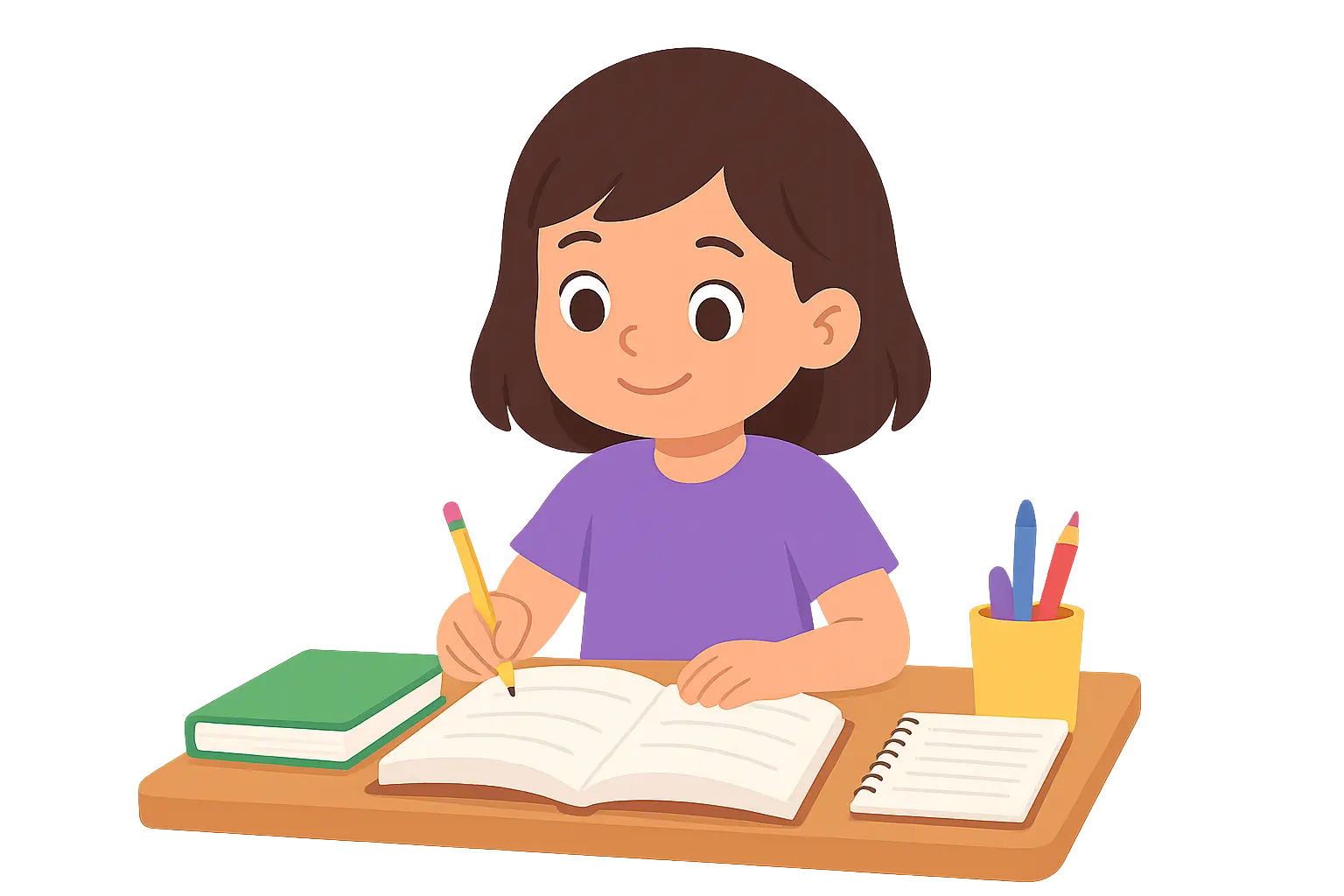Good study habits don’t just improve grades—they create lifelong learners. When children develop positive routines early on, they gain skills that help them not only in school but in everyday problem-solving and future careers.
As parents, you can guide your child toward smarter, more effective study habits. Here are the top five habits every child should learn early.
1️⃣ Set a Consistent Study Schedule
Consistency is key. Children thrive on routine, and having a fixed time for studying helps make learning a natural part of their day.
Choose a quiet time when your child is alert (not right before bedtime).
Keep sessions short but regular—20–40 minutes depending on age.
Use a calendar or planner so your child learns to manage their own schedule.
This habit teaches time management and builds discipline.
2️⃣ Create a Distraction-Free Study Space
Children learn best in an environment that’s calm, organized, and free from distractions.
Set up a study corner at home with a desk, good lighting, and necessary supplies.
Keep phones, TV, and games away during study time.
Encourage your child to keep their space tidy—it helps them focus better.
A focused environment makes every study session more productive.
3️⃣ Use Active Learning Techniques
Simply reading or memorizing isn’t enough. Children remember more when they engage actively with the material.
Some powerful techniques include:
Summarizing notes in their own words
Using flashcards for key facts
Teaching the concept back to you (“learning by teaching”)
Practicing with real-life examples (e.g., fractions while cooking)
Active learning turns study time into a hands-on, engaging process.
4️⃣ Break Tasks Into Smaller Steps
Large assignments can overwhelm children, leading to procrastination. Teach them to break tasks into smaller, manageable steps.
For example:
Instead of “study for science test,” break it into “review chapter 1,” “make flashcards,” and “practice past questions.”
Instead of “finish essay,” break it into “outline ideas,” “write introduction,” and “edit draft.”
This helps children feel less stressed and more in control of their workload.
5️⃣ Ask for Help When Needed
One of the most important habits children can learn is not being afraid to ask for help. Many students struggle silently because they don’t want to admit confusion.
Encourage your child to:
Ask questions in class
Reach out to parents, teachers, or tutors when stuck
View mistakes as part of learning, not as failure
Seeking help teaches responsibility, self-awareness, and resilience.
How Tutoring Reinforces These Habits
At Miss Purple Tutoring, we don’t just teach Maths and English—we help children develop study habits that last a lifetime. Through structured lessons, personalized feedback, and consistent practice, our tutors ensure students build both academic skills and independent learning strategies.
Final Thoughts
Study habits are just like muscles—the earlier they’re built, the stronger they become. By guiding your child to set routines, create focus, learn actively, manage tasks, and seek support, you’re giving them skills that extend far beyond school.
At Miss Purple Tutoring, our goal is to build confidence, close learning gaps, and help children succeed—inside and outside the classroom.
Want your child to develop better study habits?
Call us at (587) 974 9830 or Email misspurpletutoring@gmail.com to enroll today.

